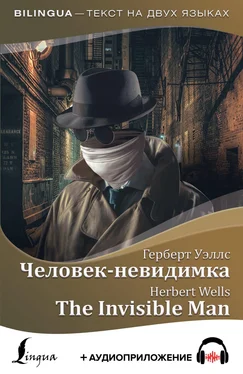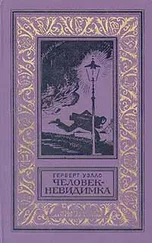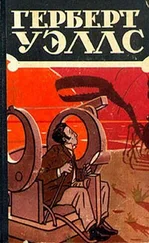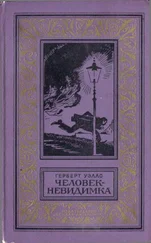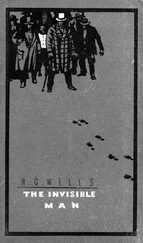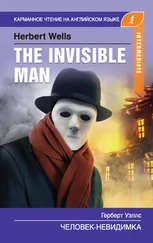He rarely went out by daylight, but at twilight he would went out invisibly, whether the weather were cold or not, and he chose the loneliest paths. His spectacles and ghastly bandaged face under his hat frightened labourers. Children as saw him at nightfall dreamt of devils, and it seemed doubtful whether he disliked boys more than they disliked him.
It was inevitable that a person of so remarkable an appearance should form a frequent topic in such a village as Iping. Opinion was greatly divided about his occupation. When questioned, Mrs. Hall explained very carefully that he was an “experimental investigator.” When asked what her investigator did, she would say with superiority that most educated people knew such things as that, and would thus explain that he “discovered things.” Her visitor had had an accident, she said, which temporarily discoloured his face and hands.
But some people said that he was a criminal trying to escape from justice by wrapping himself up so as to conceal himself altogether from the eye of the police. This idea sprang from the brain of Mr. Teddy Henfrey. Mr. Gould, the teacher, said that the stranger was an Anarchist in disguise, preparing explosives.
Another view explained the entire matter by regarding the stranger as a harmless lunatic. That had the advantage of explaining everything.
But whatever the people in Iping thought of him, they, on the whole, agreed in disliking him. His irritability was an amazing thing to these quiet villagers. The frantic gesticulations, the headlong pace after nightfall, the taste for twilight that led to the closing of doors, the pulling down of curtains, the extinction of candles and lamps-who could agree with that? When he passed down the village, young humourists would up with coat-collars and go pacing nervously after him. There was a song popular at that time called “The Bogey Man”. So whenever some villagers were gathered together and the stranger appeared, this tune was whistled in the midst of them. Also little children would call “Bogey Man!” after him.
Cuss, the general practitioner, was devoured by curiosity. The bandages excited his professional interest, the report of the thousand and one bottles aroused his jealous regard. All through April and May he coveted an opportunity of talking to the stranger, and at last, went to the “Coach and Horses”. He was surprised to find that Mrs. Hall did not know his guest’s name.
“He gave his name,” said Mrs. Hall, “but I didn’t rightly hear it.”
She was ashamed.
Cuss rapped at the parlour door and entered. “Pardon my intrusion,” said Cuss, and then the door closed.
Mrs. Hall could hear the murmur of voices for the next ten minutes, then a cry of surprise, a chair flung aside, a laughter, quick steps to the door, and Cuss appeared, his face white, his eyes huge. He left the door open behind him, and without looking at her strode across the hall and went down the steps, and she heard his feet hurrying along the road. He carried his hat in his hand. She stood behind the door, looking at the open door of the parlour. Then she heard the strange laughing, and then footsteps came across the room. She could not see his face where she stood. The parlour door slammed, and the place was silent again.
Cuss went straight up the village to Bunting the vicar.
“Am I mad?” Cuss began abruptly, as he entered the shabby little study. “Do I look like an insane person?”
“What’s happened?” said the vicar.
“That chap at the inn-”
“Well?”
“Give me something to drink,” said Cuss, and he sat down. Then told the vicar of the interview he had just had.
“I went in,” he gasped, “he had his hands in his pockets as I came in, and he sat down in his chair. I told him I’d heard he took an interest in science. He said yes. Then he sniffed. I kept my eyes open. Bottles-chemicals-everywhere. Balance, test-tubes, and a smell of evening primrose. I asked him if he was researching. He said he was. A long research? ‘A damnable long research,’ said he. ‘Oh,’ said I. He had been given a prescription, most valuable prescription-what for he wouldn’t say. Was it medical? ‘Damn you! That’s none of your business!’ I apologised. He read the prescription. Five ingredients. He put it down and turned his head. Draught of air from window lifted the paper. He was working in a room with an open fireplace. I saw a flicker, and there was the prescription burning and lifting chimney ward. He rushed towards it just as it whisked up the chimney. So! He lifted his arm. And that time…”
“Well?”
“No hand-just an empty sleeve. Lord! I thought, there’s something odd in that. What the devil keeps that sleeve up and open, if there’s nothing in it? There was nothing in it, I tell you. Nothing, absolutely nothing! I could see right down it to the elbow, and there was a glimmer of light shining through a tear of the cloth. ‘Good God!’ I said. Then he stopped. Stared at me with those black glasses of his, and then at his sleeve.”
“Well?”
“That’s all. He never said a word; just glared, and put his sleeve back in his pocket quickly. ‘How the devil,’ said I, ‘can you move an empty sleeve like that?’ ‘Empty sleeve?’ ‘Yes,’ said I, ‘an empty sleeve.’ ‘It’s an empty sleeve, is it? You saw it was an empty sleeve?’ He stood up right away. I stood up too. He came towards me in three very slow steps, and stood quite close. ‘You said it was an empty sleeve?’ he said. ‘Certainly,’ I said. Then very quietly he pulled his sleeve out of his pocket again, and raised his arm towards me as though he would show it to me again. He did it very, very slowly. I looked at it. ‘Well?’ said I, clearing my throat, ‘there’s nothing in it.’ I could see right down it. He extended it straight towards me, slowly, slowly-just like that-until the cuff was six inches from my face. Queer thing to see an empty sleeve come at you like that! And then-”
“Well?”
“Something-exactly like a finger and thumb it felt-nipped my nose!”
Bunting began to laugh.
“There wasn’t anything there!” said Cuss. “It’s all very well for you to laugh, but I tell you I was so startled, I hit his cuff hard, and turned around, and ran out of the room.”
Cuss stopped. There was no mistaking the sincerity of his panic.
“When I hit his cuff,” said Cuss, “I tell you, it felt exactly like hitting an arm. And there wasn’t an arm! There wasn’t the ghost of an arm!”
Mr. Bunting thought it over. He looked suspiciously at Cuss.
“It’s a most remarkable story,” he said.
He looked very wise and grave indeed.
“It’s really,” said Mr. Bunting, “a most remarkable story.”
Chapter V
The Burglary at the Vicarage
The facts of the burglary at the vicarage came to us chiefly through the stories of the vicar and his wife. It occurred in the morning. Mrs. Bunting woke up suddenly in the stillness that comes before the dawn, with the strong impression that the door of their bedroom had opened and closed. She did not arouse her husband, but sat up in bed listening. She then distinctly heard the bare feet coming out of the dressing-room and walking along the passage towards the staircase. As soon as she felt assured of this, she aroused Mr. Bunting as quietly as possible. He put on his spectacles, her dressing-gown and his slippers, and went out to listen. He heard quite distinctly a noise at his study downstairs, and then a sneeze.
At that he returned to his bedroom, armed himself with the poker, and descended the staircase as noiselessly as possible. Mrs. Bunting came out, too.
The hour was about four. There was a faint shimmer of light in the hall. Everything was still except the faint creaking of the stairs under Mr. Bunting’s tread, and the slight movements in the study. Then something snapped, the drawer was opened, and there was a rustle of papers. Then came an imprecation, and a match was struck and the study was flooded with yellow light. Mr. Bunting was now in the hall, and through the crack of the door he could see the desk and the open drawer and a candle burning on the desk. But the robber he could not see. He stood there in the hall undecided what to do, and Mrs. Bunting, her face white and intent, crept slowly downstairs after him. One thing kept Mr. Bunting’s courage; the persuasion that this burglar was a resident in the village.
Читать дальше
